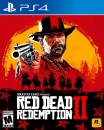Cerebralbore101 said:
-_- Really? Just because I pointed out the errors in your rebuttal to an argument that I know to be faulty, you think I'm for that sort of argument? Really? Maybe you haven't paid attention to my posts for the past six years. I don't know how many thousand times I've posted that graphics don't matter. But okay. I agree that applying a price to performance ratio doesn't predict squat for Nintendo consoles. That's why I said price to performance/features ratio. Gameboy, GBA, DS, Wii, and Switch have all sold based on their price to performance/features ratio. Gameboy wouldn't have sold if it didn't have a stupidly long battery life. The GBA SP's folding design was a godsend. DS had the touchscreen. Take motion controls away from the Wii and it's just another Gamecube. Take the portability away from the Switch and it's a regular console. But you ignored the phrase "price to performance/features", and instead attacked the strawman of "price to performance". I know a lot of people have come on these boards over the years asking for another Gamecube, and arguing that if Nintendo just made a console as powerful as the other two they would be back int the game. But please don't lump me in with them. |
This. Power matters if your system doesn't have any redeeming feature which was the case with Wii U. The Wii had a low price point and a motion control gimmick that became a success with the casual masses. The Switch has a hybrid nature, a portable that can play on your TV and can offer big AAA home console experience on the go. Those two have been the only examples in which Nintendo sold extremely well in the home console market with underpowered hardware.
I don't that like to bring the gameboy, Advance, SP, DS, 3DS argument into this particular fray because Nintendo has dominated that market from the start. As you correctly point out the original GB had a ridiculously long battery life which made it the perfect portable in comparison to Sega's Game Gear, which was expensive and would have ruined your pocket in battery expenses. Nintendo got a real Challenge in the form of the PSP, but again the pricing and the market in those days for portable game systems favored Nintendo greatly. Most parents would rather buy their kid the foldable (thus durable) DS rather than the more expensive PSP. Nintendo also had a bigger library of titles. That also stood true for the 3DS-Vita matchup. I think it is clear that people don't buy portables for sheer horse power, they want portability.



















